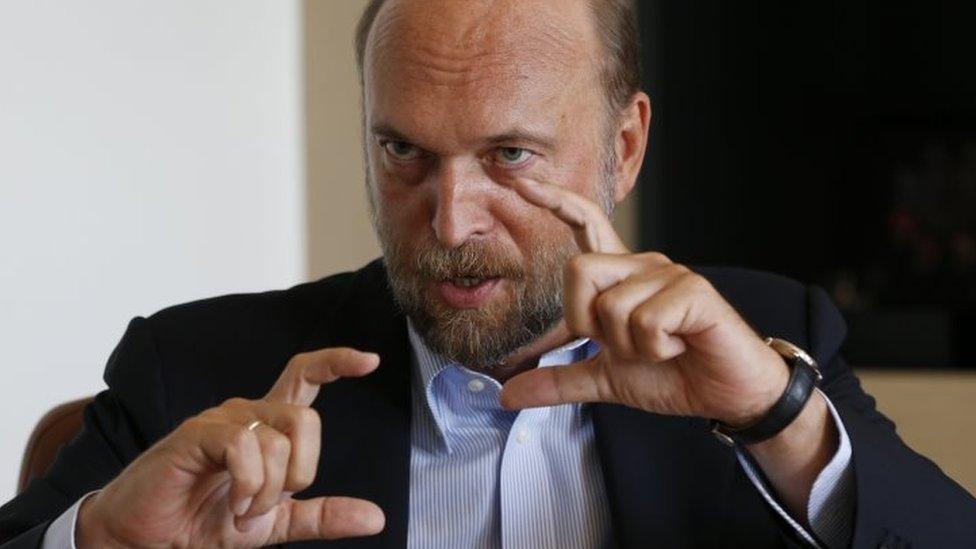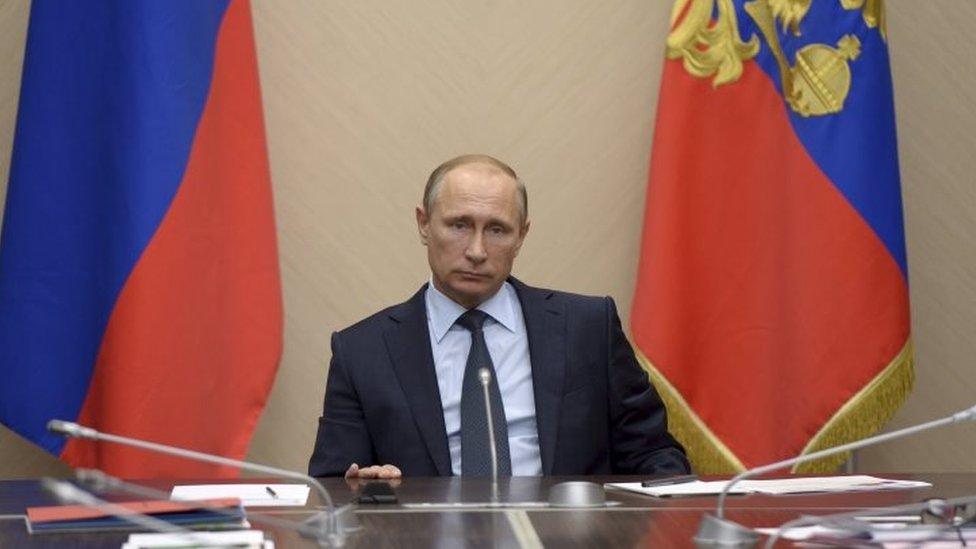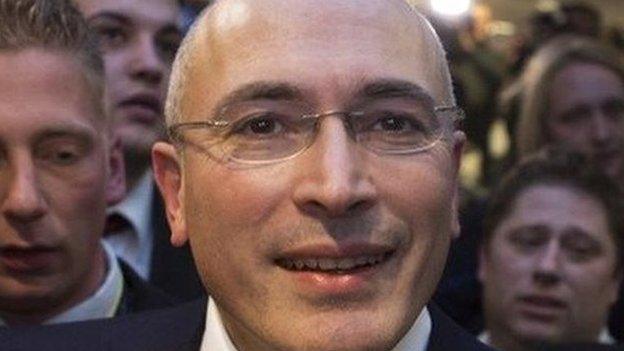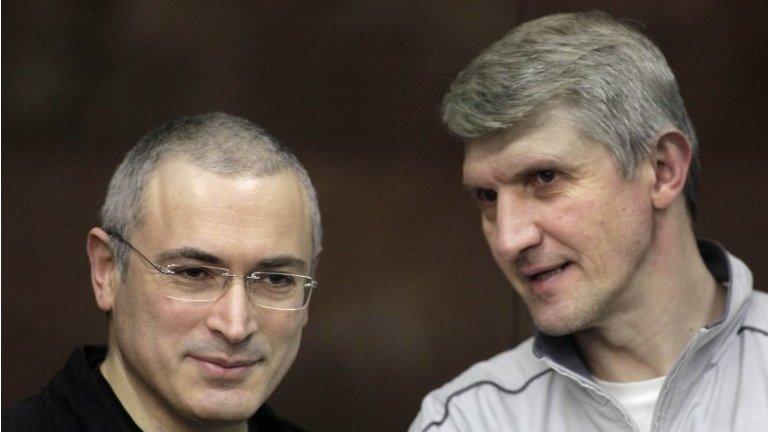'Putin's ex-banker' files $12bn Russian compensation claim
- Published

Sergei Pugachev once estimated his business empire was worth $15bn
Sergei Pugachev - a Russian tycoon once known as "Putin's banker" - has said he filed a $12bn (£8bn) compensation claim against the Russian state.
In the claim at the Permanent Court of Arbitration in The Hague he said Russia had carved up his empire after he fell out with President Vladimir Putin.
Russia accuses Mr Pugachev, 52, of embezzling millions of dollars.
An Interpol arrest warrant has been issued for him at Moscow's request. Mr Pugachev denies the charges.
'Fearing for life'
The oligarch - who once estimated his business empire was worth $15bn - announced his move against Russia on Tuesday in Paris.
He told Reuters that Mr Putin's allies had "expropriated my assets" following the 2008 global financial crisis and then pursued him in courts on charges of embezzlement and asset misappropriation.
He also said that he had feared for his life after falling out with Mr Putin.

Vladimir Putin's spokesman said investigations in Russia had nothing to do with Mr Pugachev's relations with the president
Mr Pugachev - the founder of Mezhprombank bank - said his case resembled that of Yukos, Russia's now defunct oil producer giant.
In 2014, The Hague court ruled that Russia should pay $50bn in damages to former Yukos shareholders. It said Russian officials had manipulated the legal system to bankrupt Yukos and jail its boss Mikhail Khodorkovsky.
Russia said it would appeal against the ruling.
Meanwhile in Russia, a court in May ordered Mr Pugachev's arrest on embezzlement charges. The tycoon is accused of knowingly bankrupting his own bank.
Mr Pugachev left Russia in 2011 and since then has been living in Britain and France.
Kremlin spokesman Dmitry Peskov did not commented on the oligarch's compensation claim in The Hague court.
However, he said investigations in Russia against Mr Pugachev had nothing to do with the tycoon's relations with President Putin.
"If I am not mistaken, Pugachev is on a wanted list, after all, and, of course, the investigative and search work... has nothing to do with friendly or unfriendly relations," Mr Peskov told Russia's Ekho Moskvy radio station
"Therefore, here I would absolutely not mix these two issues," the spokesman added.
- Published28 July 2014

- Published24 January 2014
